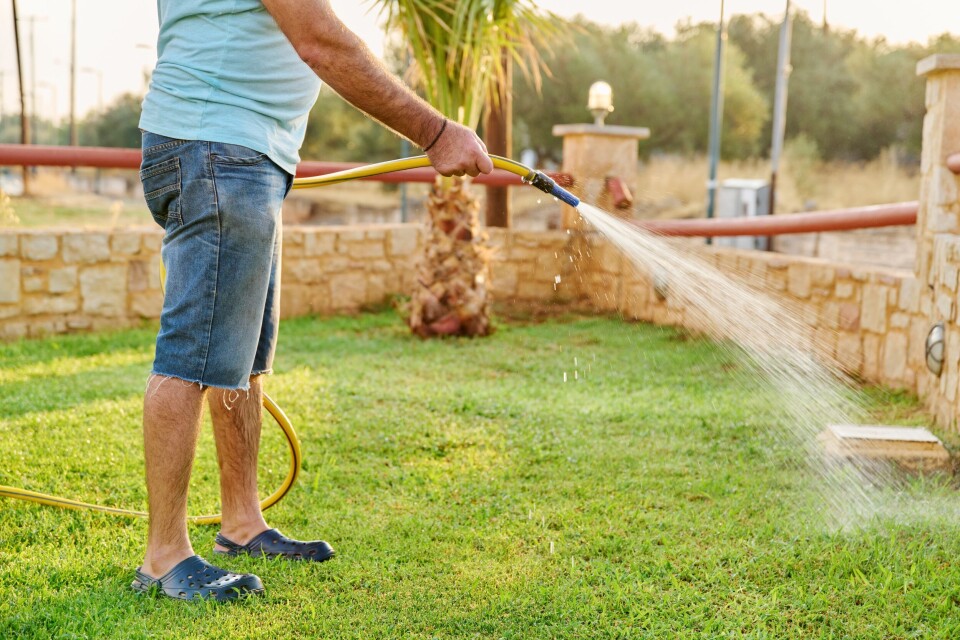-
From Oregon to Brittany: primrose nursery in France celebrates 90th anniversary
Barnhaven Primroses traces its history back to 1930s America
-
Water-use restrictions lifted for some households in the Pyrénées-Orientales
Rainfall replenishes reservoirs but bans still remain in northern areas
-
January flowers in your French garden with scented viburnum
Our gardening columnist explores a pretty pink shrub that gives long-lasting winter displays
Homeowners in France urged to help ease drought and forest fires
We explain the yellow, orange and red drought warnings and what action to take to prepare for restrictions

Homeowners are being asked to clear gardens and watch water use as drought and forest fires loom large this summer.
Parts of France experienced a dry winter after droughts last summer, and it is likely that early water restrictions will be imposed.
Not all the country will be affected straight away, as large parts of the west have had normal rainfall this winter, but early warnings from the government mean it is advisable to prepare for restrictions.
Read more: Water management expert throws doubt on French minister’s drought plan
In preparation, the number of outlets offering rainwater storage tanks in France has increased dramatically, with prices starting at €500 for larger ones.
Do you live in a drought alert area?
The country has four levels of drought alerts, shown on official maps.
As of late March, 20 departments were covered by a grey vigilance warning, meaning people are asked to be careful with water use.
Six were partly or wholly covered by higher yellow warnings, and there were three areas with orange warnings, including almost all of Pyrénées-Orientales.
Take action in yellow warning areas
If you live in an area with a yellow warning, classified as an alerte, water usage for agricultural purposes is limited.
People living in mills or on canals are banned from opening sluice gates, and gardens can only be watered at certain times.
Parks, golf courses and car washes are also limited to using water at certain times and there might be restrictions on filling swimming pools.
Orange warning actions
For areas with orange warnings, farmers are further restricted in the amount of water they can use for irrigation, with stricter limits on washing cars and watering gardens, green spaces or golf courses.
In some cases, these acts are banned completely.
Rare red warning
The most serious (red, or crise) level is declared rarely and bans water use for most agriculture.
Households can use it only for health, drinking and cleaning purposes.
Store rainwater and mulch gardens
Communes can have several watersheds and water tables, so restrictions in one area might not apply everywhere.
The only way to be sure is to check the commune’s official noticeboard or ask if you are affected.
Bans include well water as it comes from the same water table as tap water.
Read more: Can I use water from well to water garden during droughts in France?
However, you are allowed to use stored rainwater without restriction during a ban for things such as watering gardens, washing cars and topping up swimming pools.
Other ways to improve water efficiency in the garden include working the soil and mulching to preserve moisture in the ground.
Clearing garden waste prevents fires
Homeowners are also being asked to clear their gardens of green waste and dead undergrowth to reduce the risk of forest fires.
In some areas of France, it is mandatory.
Read more: Why the French government wants you to clear up your garden
These regulations are known as obligations légales de débroussaillement and primarily apply to southern departments.
Where they apply, owners of properties situated within 200 metres of woodland are usually required to clear 50 metres around their buildings. Check with your mairie.
Related articles
Seven tips on how to save water and reduce your bills in France
Several injured in ‘water basin protest’ in France: what happened?
France allows local authorities to use wastewater after record drought
























